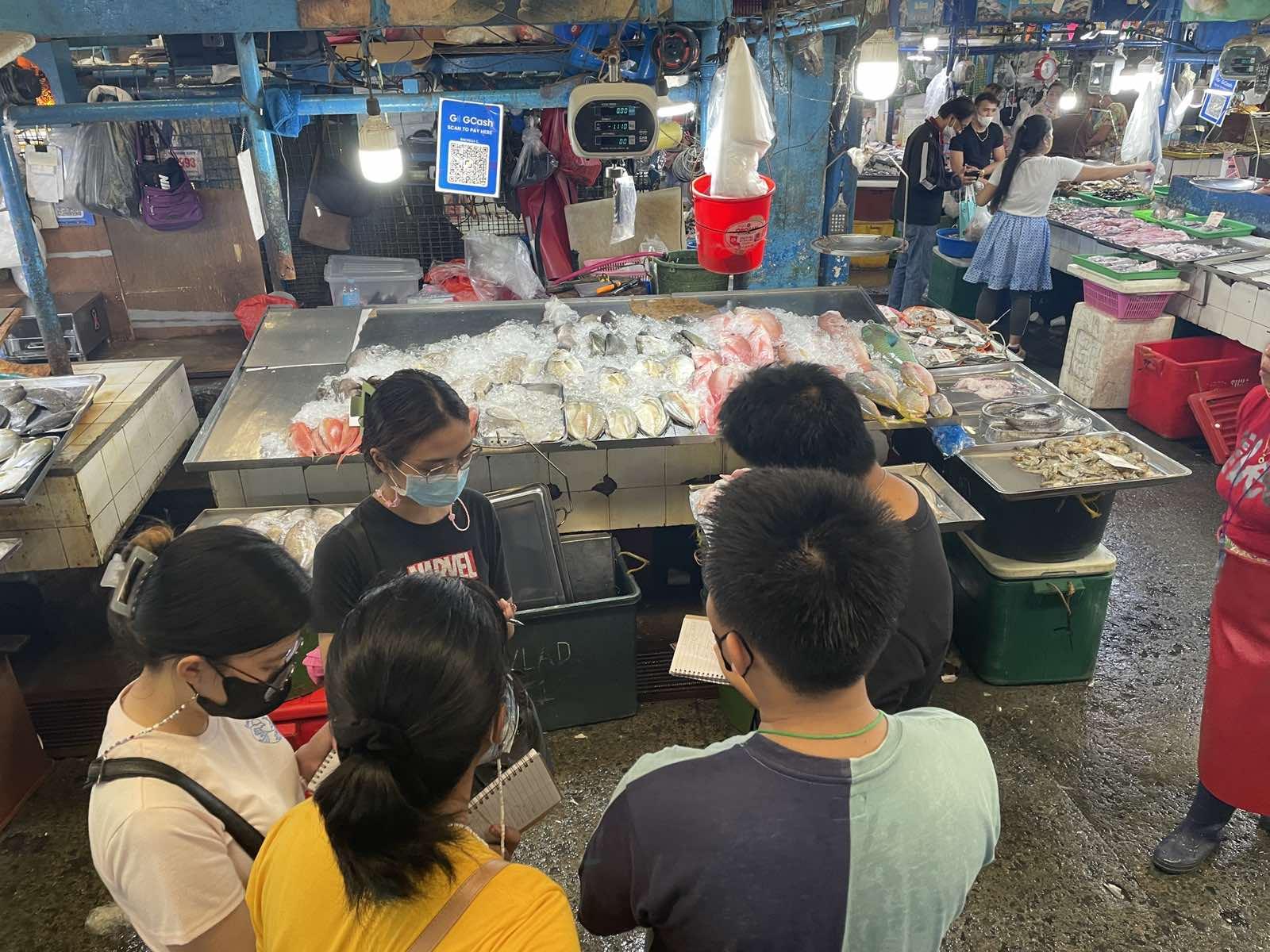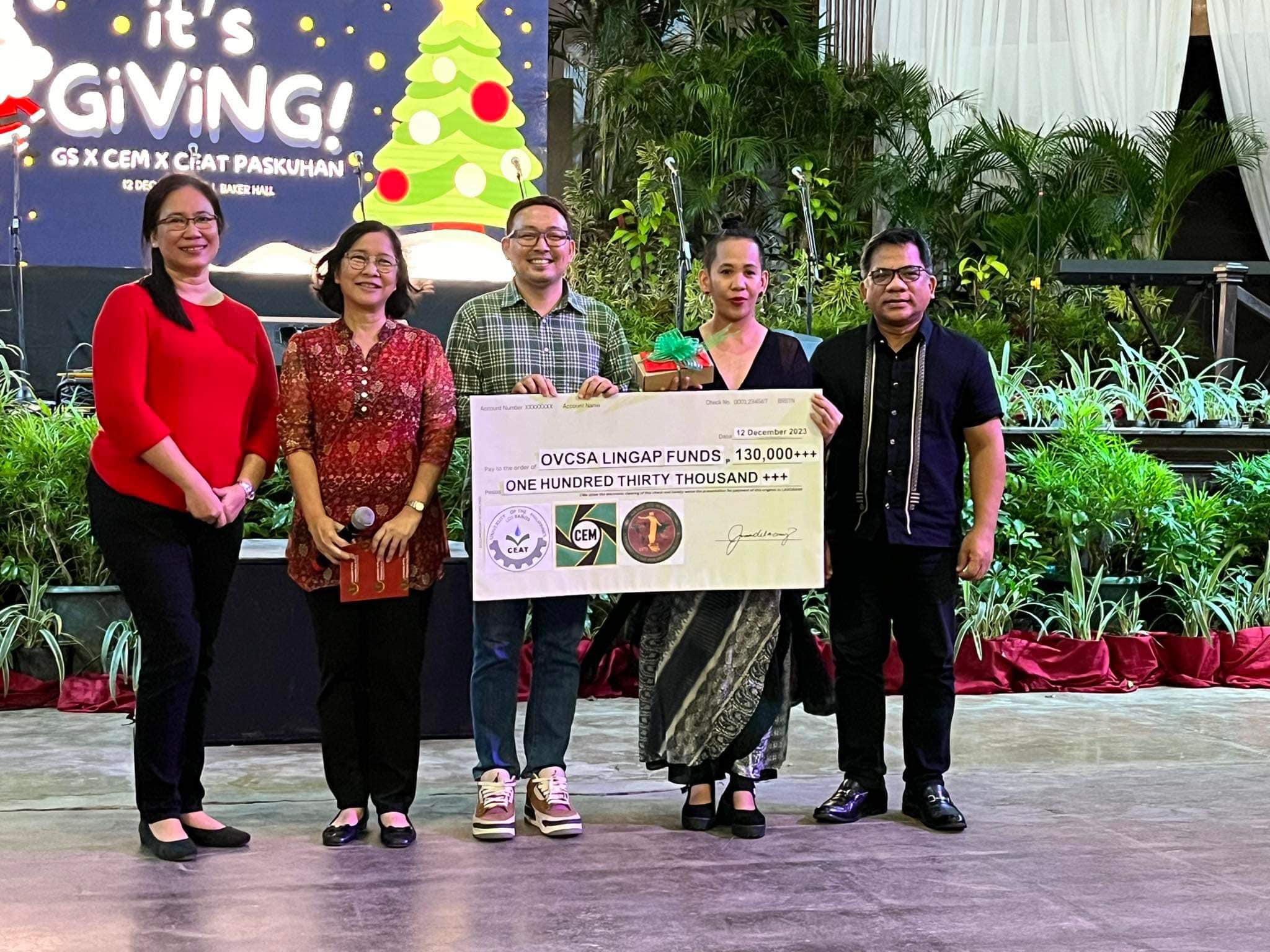
As part of their program, 53 students from the Department of Agricultural and Applied Economics (DAAE) of the University of the Philippines Los Baños (UPLB) underwent internship in different partner Host Training Establishments (HTEs). The internship program was offered in two modes: combination of face-to-face and online (referred to as face-to-face internship thereafter) and full online internship.
In this article, interns share some of their learnings and experiences working for the organizations and institutions they applied for.
Danica delos Reyes, a face-to-face intern for the Southeast Asian Regional Center for Graduate Study and Research in Agriculture (SEARCA), had a proud opportunity to practice some of the skills she learned in class.
SEARCA interns with their supervisors in a meeting Source: Danica delos Reyes
“I was able to see practical applications of the things I have learned in class. For the whole
month, their main task was on data collection,” she said. “They have involved us throughout the
whole process, from planning and brainstorming to coordination with the concerned offices, and
during the data collection itself.”
SEARCA conducted a baseline assessment of Catanauan, Quezon’s coconut industry. Read
about it here.
She added, “The data collection activity was exhausting as we needed to move from one house
to another. However, listening to the stories of different people from various walks of life was a
great reminder of what an Iskolar ng Bayan stands for and our commitment to move forward.”
Meanwhile, face-to-face intern Reign Maclang highlighted the importance of initiative while
working for Fishta Seafood, Inc. – Metro Manila’s leading seafood provider. Fishta interns were
tasked to craft a market study of their products, with a goal to expand wet market channels.
Fishta interns share ideas with each other as they conduct wet market interviews Source: Reign Louise Maclang
“In our internship, initiative was very important. There were times when we were not given tasks
but you have to initiate to do something that is related to your final project,” she said. “We,
interns, saw the reality of agriculture and aquaculture through our interviews with meat, seafood
and vegetable vendors.”
The organization also gave them a helpful reminder that has guided students throughout the
month-long internship experience.
“Fishta also always reminded us of enjoying the process and the work we are doing because
through that, we are not only learning but also are having fun doing so,” Maclang said.
Nojie Nojor, who worked for Ekonsepto, said that the virtual internship helped him “realize that
knowledge is something that should be shared and understood by everyone.” Ekonsepto interns
were tasked to write a number of easily-understood primers related to economics, along with
other materials that seek to promote economics literacy.
“It is necessary to help ordinary people, especially the youth, to have an understanding
specifically of the different economic concepts that are vital and affect their everyday living,” he
said.
Ekonsepto editors, staff, and interns in their onboarding session Source: Ekonsepto
The other HTEs that students interned for were namely, AgriJuan, Cropital, Department of
Science and Technology – Technological Application and Promotion Institute (DOST-TAPI),
GlowCorp, National Confederation of Cooperatives (NATCCO), National Economic and
Development Authority (NEDA), Pedro Farms, Philippine Rice Research Institute (PhilRice) Los
Baños, and PhilRice Nueva Ecija.
All interns were briefed by their respective HTEs’ onboarding session during the first week of
July. The internship course lasted until the first week of August. (Mark Ernest B. Famatigan and
Sean Dranreb L. Mayani)

